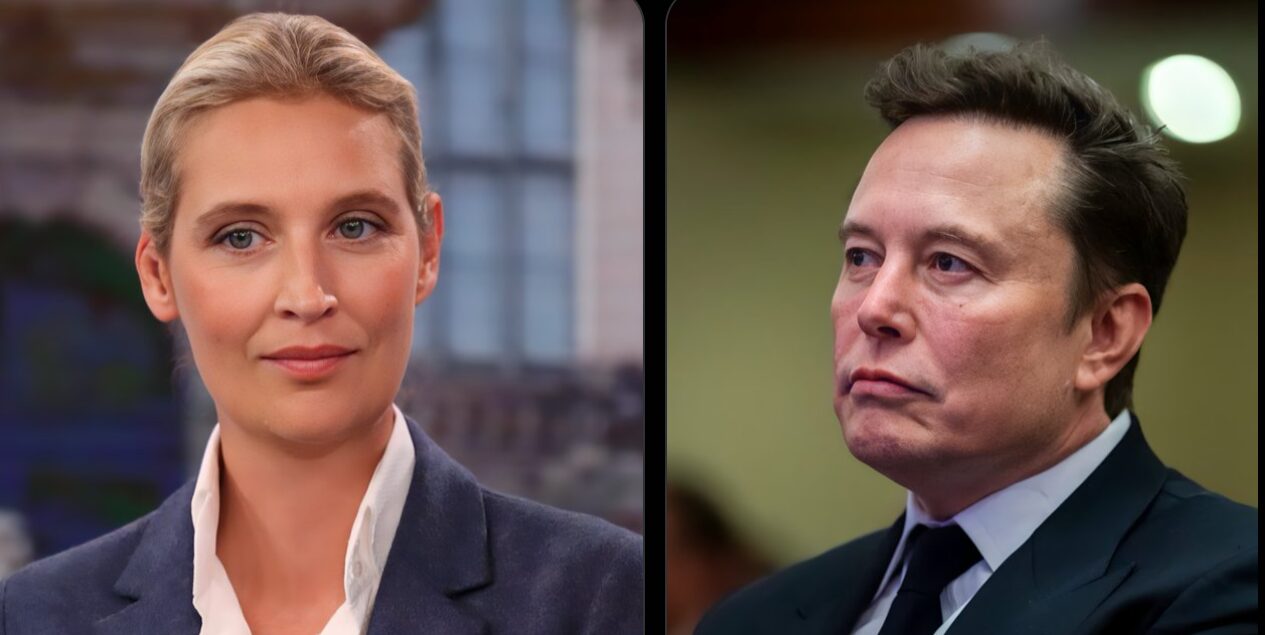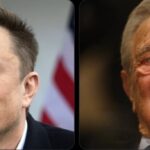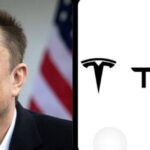ELON MUSK backs Alice Weidel’s Alternative for Germany party (AfD) ahead of German elections
Elon Musk Backs Alice Weidel’s Alternative for Germany (AfD) Party Ahead of German Elections – A Controversial Move with Global Implications
In a surprising political development, Elon Musk, the billionaire entrepreneur and CEO of companies like Tesla and SpaceX, has publicly expressed support for Alice Weidel and her far-right party, the Alternative for Germany (AfD), just ahead of Germany’s upcoming elections. Musk’s endorsement has sparked significant controversy, both in Germany and internationally, drawing attention to his political views and their potential influence on the European political landscape.
Who is Alice Weidel and the AfD?
Alice Weidel is one of the leading figures of the Alternative for Germany (AfD), a political party known for its far-right and anti-immigration stances. Founded in 2013, the AfD initially emerged as a Eurosceptic party, primarily focused on opposition to the European Union’s economic policies. However, over time, the party has become increasingly associated with populist, nationalist, and anti-immigration rhetoric.
Weidel, who has served as the party’s co-chairwoman, is known for her strong positions on issues such as immigration, the European Union, and German national identity. She has repeatedly criticized Chancellor Angela Merkel’s open-door policy for refugees, advocated for the reduction of Germany’s commitment to the EU, and pushed for policies that prioritize German interests over globalism. Under her leadership, the AfD has grown to become one of Germany’s most controversial political forces, garnering significant support from those disillusioned with traditional parties.
Despite being a relatively new party, the AfD has gained traction in recent years, particularly in eastern Germany, and has established a strong presence in the Bundestag, Germany’s federal parliament. However, it has also faced significant criticism for its far-right views and association with extremist factions. The AfD has been accused of harboring xenophobic, Islamophobic, and even neo-Nazi elements, although its leaders, including Weidel, have distanced themselves from such accusations. Still, the party remains a lightning rod for political debate in Germany.
Elon Musk’s Support for Alice Weidel and the AfD
Elon Musk’s decision to support Alice Weidel and the AfD has sent shockwaves through the political world. Musk, known for his innovative achievements in the tech world and his often controversial statements on social media, has increasingly stepped into the political spotlight in recent years. While Musk has previously expressed opinions on various political issues, including his views on free speech, cryptocurrency regulation, and climate change, his support for a far-right party like the AfD represents a notable shift.
In a statement released on his Twitter account, Musk praised Weidel for her “bold leadership” and “clear vision” for Germany’s future. He also expressed his admiration for her stance on immigration, calling her approach “sensible” and “realistic” in addressing the challenges posed by mass migration to Europe. Musk’s endorsement of the AfD has drawn sharp criticism from many quarters, particularly in Europe, where the party is seen as a threat to liberal democratic values and social cohesion.
Many have raised concerns about Musk’s backing of a party associated with extreme right-wing views, including racism, anti-Semitism, and a rejection of liberal democratic norms. Critics argue that Musk’s support for Weidel and the AfD could lend legitimacy to a political force that has been criticized for its radical agenda and inflammatory rhetoric. For example, Weidel has made controversial remarks about Germany’s refugee policies, European integration, and the role of Islam in German society, all of which have stirred tensions within the country.
On the other hand, Musk’s supporters view his endorsement as an expression of his commitment to freedom of speech and the promotion of alternative viewpoints. Musk has long positioned himself as a defender of free speech, advocating for less censorship on social media and supporting individuals who challenge mainstream narratives. His endorsement of Weidel could be seen as an attempt to champion the right of the AfD to participate in Germany’s political discourse, even if their views are controversial.
The Political Ramifications of Musk’s Endorsement
Musk’s endorsement of the AfD is bound to have significant political implications, both in Germany and internationally. In Germany, the timing of Musk’s support ahead of the elections has created a political firestorm. The upcoming German elections are expected to be highly competitive, with multiple parties vying for power amid concerns over economic growth, immigration, and Germany’s role in the European Union.
For the AfD, Musk’s backing could provide a boost in terms of international visibility and credibility. Although the party has already made significant gains in the polls, especially in regions where anti-immigration sentiment is strong, Musk’s endorsement could help solidify its position among disaffected voters who are dissatisfied with the traditional political establishment. His backing may also attract further attention to the party’s populist and nationalist platform, increasing its appeal to voters who feel alienated by Germany’s mainstream political parties.
However, Musk’s endorsement could also backfire, particularly within Germany itself. Many Germans view the AfD as a dangerous political force that undermines the country’s democratic values. In the wake of World War II and the Holocaust, Germany has long been committed to promoting human rights, inclusivity, and tolerance. The rise of far-right parties like the AfD is seen by many as a step backward, and Musk’s support for the party may alienate German voters who are concerned about the party’s nationalist agenda and its potential to exacerbate social divisions.
The backlash from Germany’s political establishment has been swift. Leaders from both the center-left Social Democrats (SPD) and the conservative Christian Democratic Union (CDU) have condemned Musk’s support for the AfD, calling it a dangerous endorsement of far-right extremism. Additionally, various civil society groups and human rights organizations have voiced their concern, warning that Musk’s public backing of the AfD could further legitimize hate speech and xenophobia in Germany.
Musk’s Political Influence and Global Reach
Musk’s endorsement of the AfD is not just a domestic issue for Germany. Given his global profile and influence, Musk’s statements often reverberate far beyond the confines of national politics. His opinions on various issues, whether related to technology, space exploration, or social issues, have the potential to shape public discourse and impact global debates.
In this case, Musk’s support for Weidel and the AfD highlights the increasing intersection between tech moguls and politics. Musk is one of the world’s wealthiest and most influential individuals, with a massive following on social media platforms like Twitter, where his comments can quickly go viral. As the founder of companies like Tesla and SpaceX, Musk has the ability to shape opinions on a wide range of issues, from climate change to government regulation. His political endorsement carries weight, particularly among his followers and the tech-savvy demographic, who may view his opinions as an alternative to mainstream political narratives.
However, Musk’s political engagement has also been controversial, with some accusing him of using his influence to promote divisive or fringe ideas. His support for the AfD raises important questions about the role of billionaires in politics and their ability to sway public opinion, particularly when their personal wealth and power are at stake. Critics argue that wealthy individuals like Musk should refrain from meddling in the political process, especially when their views are seen as promoting divisiveness and extremism.
The Future of the AfD in Germany
While Musk’s endorsement may help the AfD gain attention, it remains to be seen whether it will translate into increased support at the ballot box. The party is still largely a minority player in German politics, with its appeal confined primarily to voters who are dissatisfied with the status quo and concerned about issues like immigration and national identity. Despite this, the AfD’s presence in the Bundestag and its growing support in certain regions indicate that it is a force to be reckoned with in German politics.
The upcoming elections will be a crucial test for the AfD’s future, and Musk’s endorsement could either bolster its position or backfire, depending on how voters perceive it. With Germany facing significant challenges in terms of economic stability, the European Union’s future, and social integration, the outcome of the elections will have profound implications for the country’s political direction.
Conclusion: A Controversial Endorsement with Lasting Impact
Elon Musk’s endorsement of Alice Weidel and the AfD has stirred controversy and raised important questions about the role of billionaires in politics. While Musk’s support may provide a temporary boost to the far-right party, it is also a reminder of the growing influence of tech moguls in shaping political discourse on a global scale.
In Germany, Musk’s backing of the AfD is likely to intensify debates about the future of the country’s political landscape, particularly as the nation grapples with issues of immigration, nationalism, and the rise of populism. Whether Musk’s support will ultimately help or hurt the AfD remains to be seen, but one thing is clear: the world is watching as this high-profile political endorsement unfolds.

















Post Comment